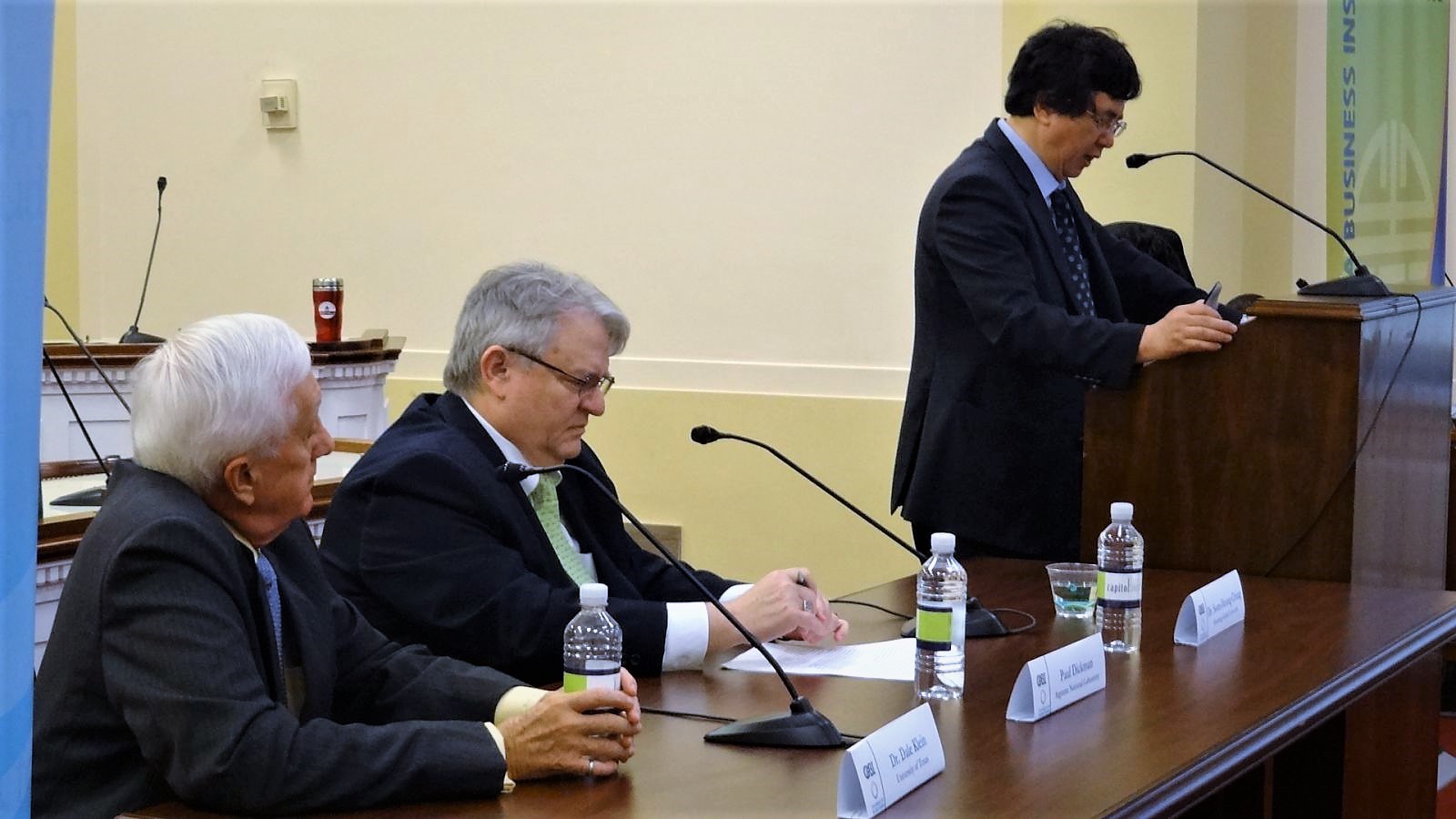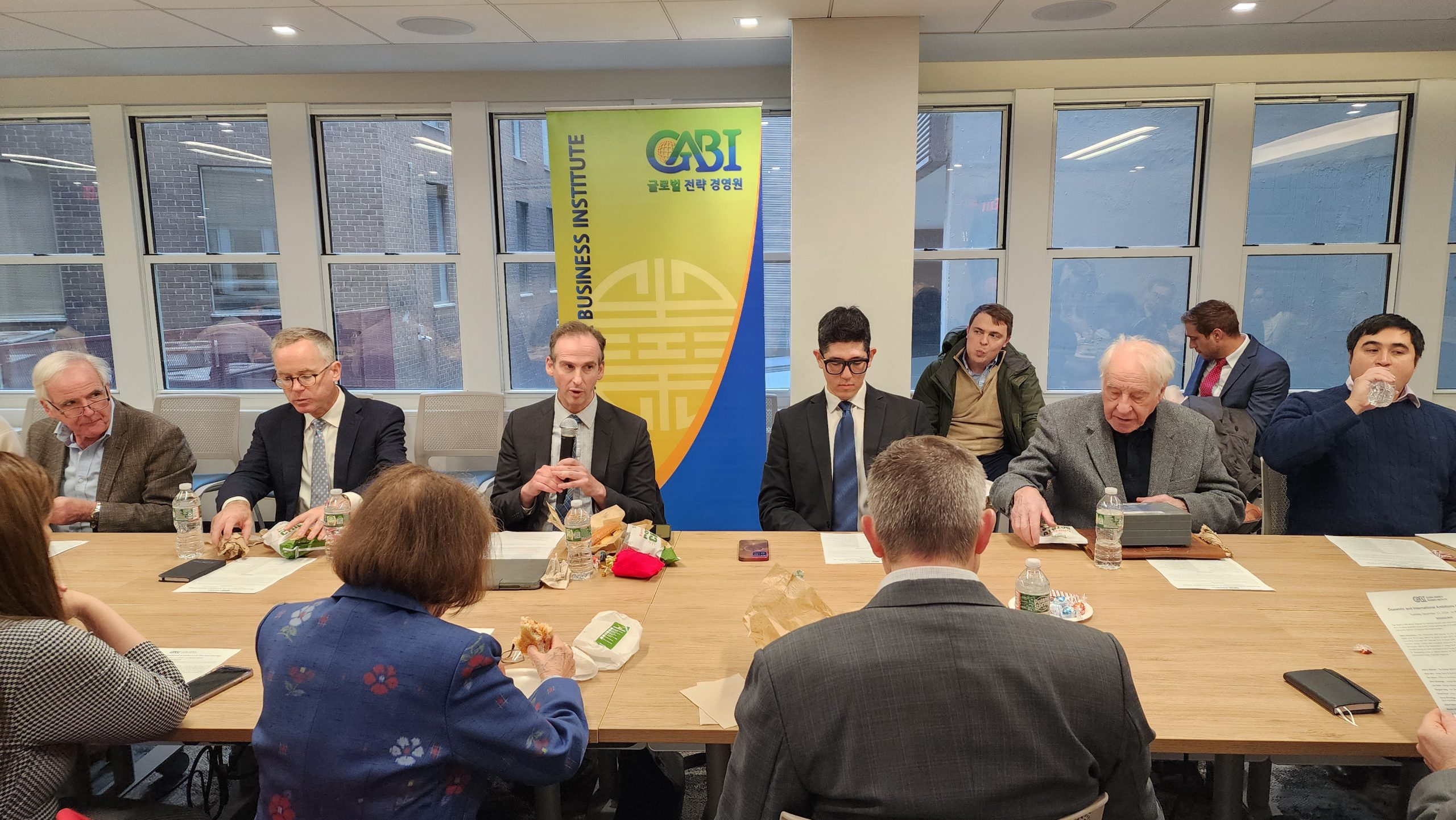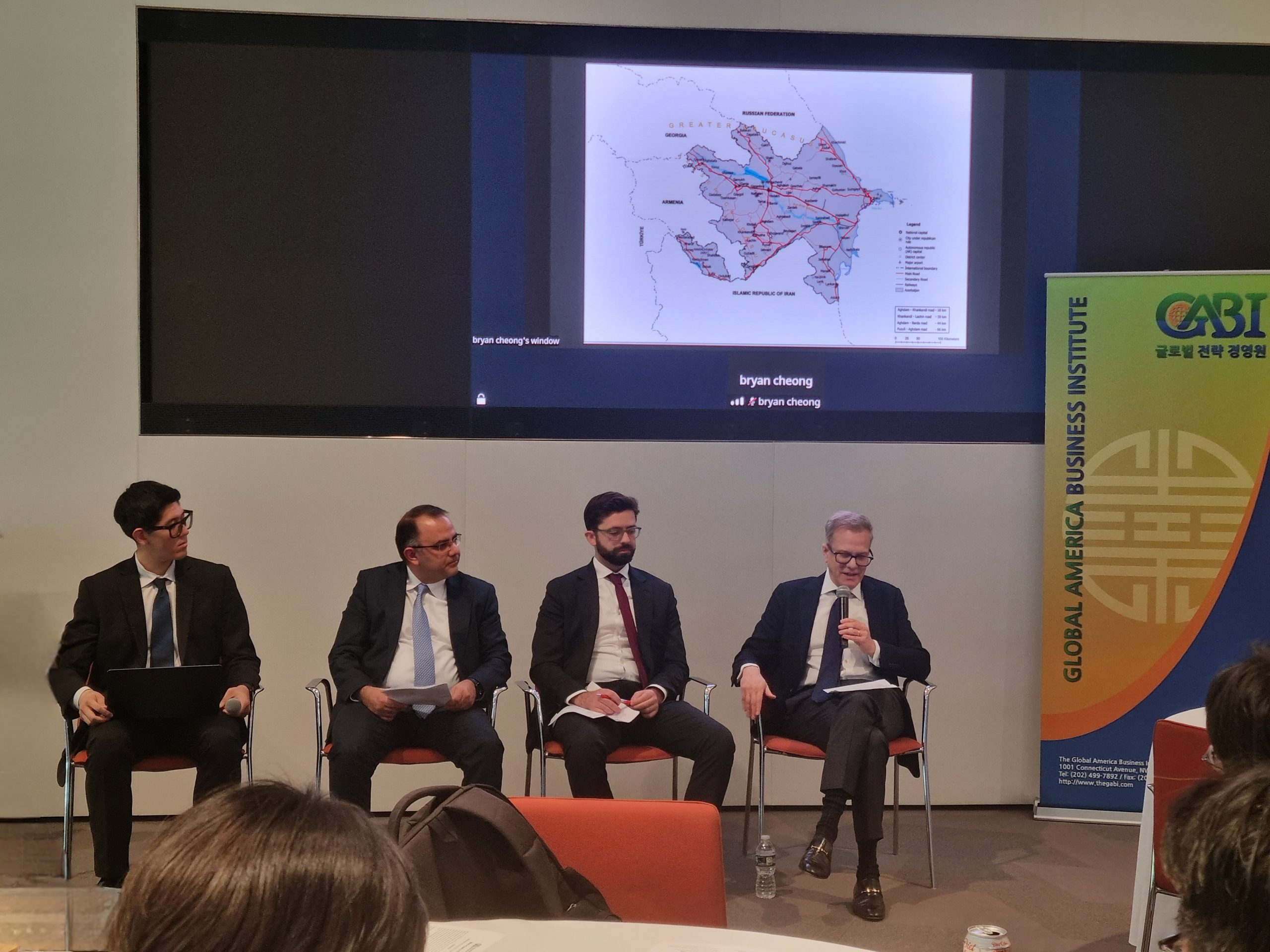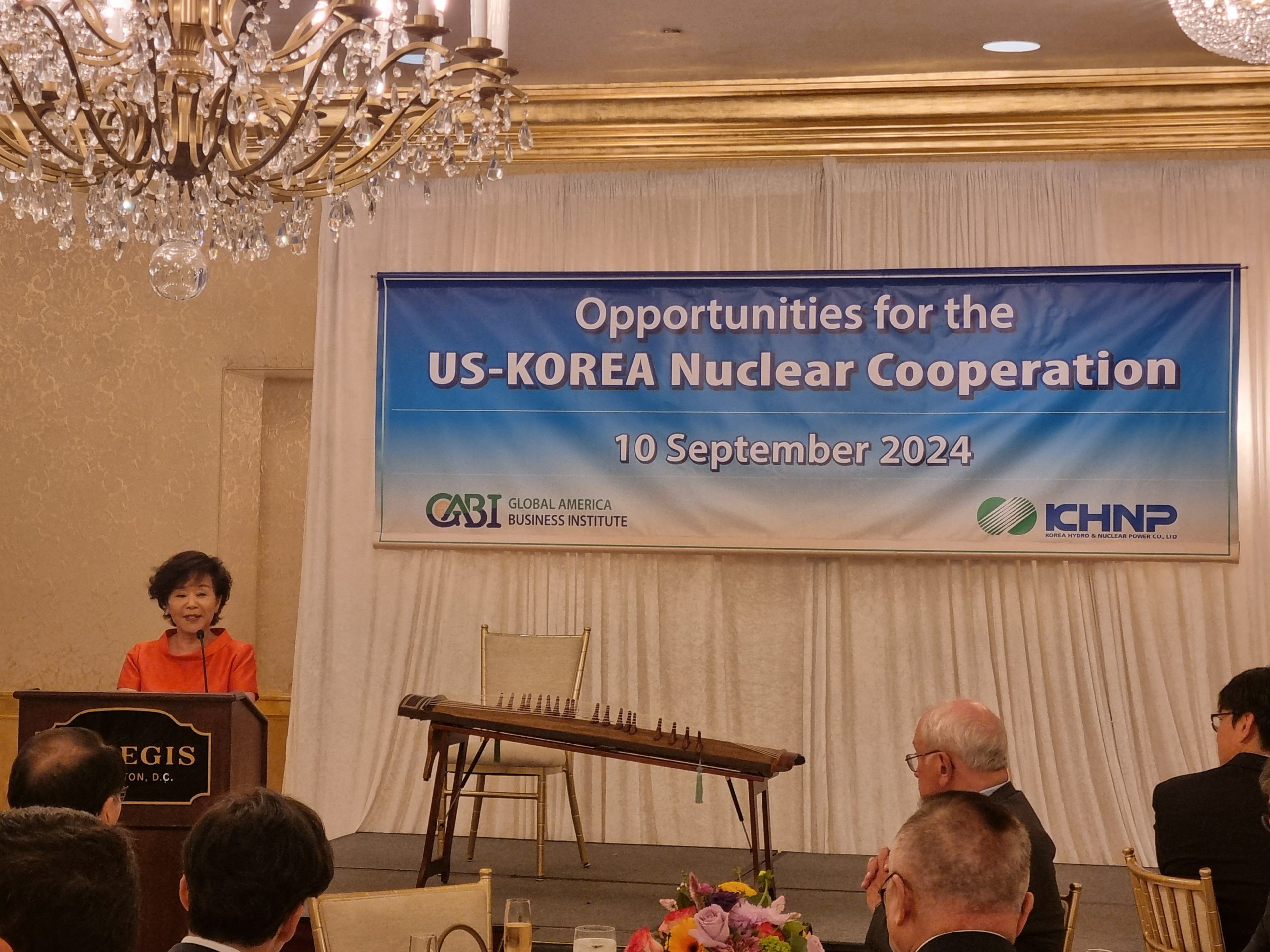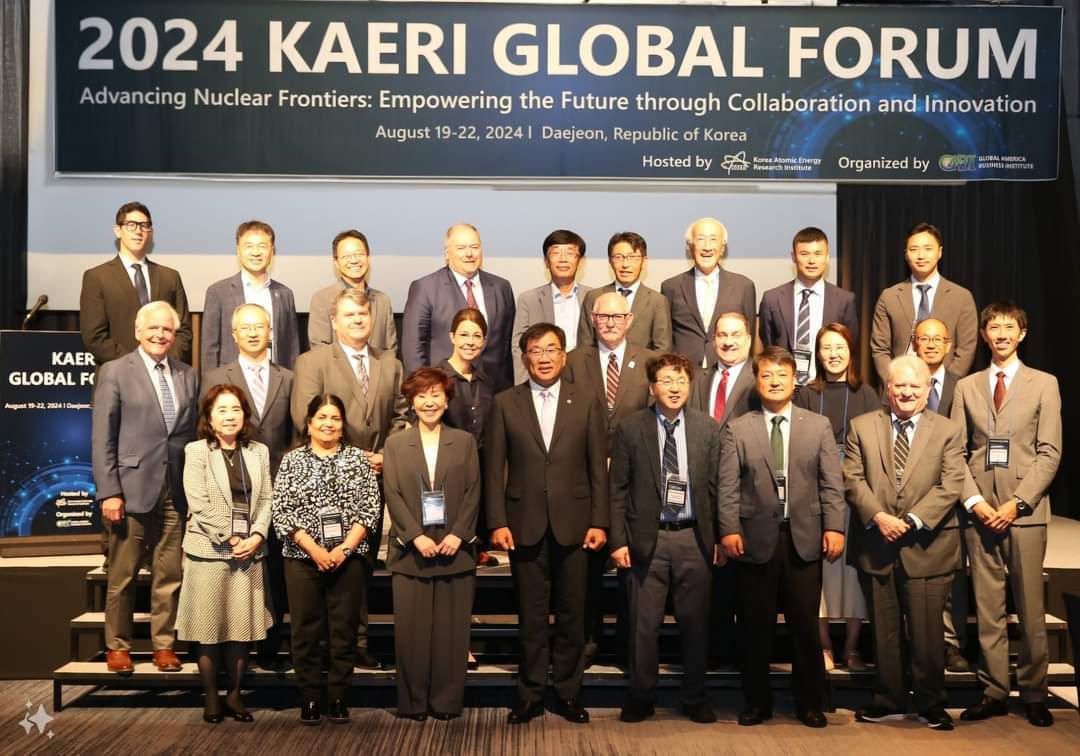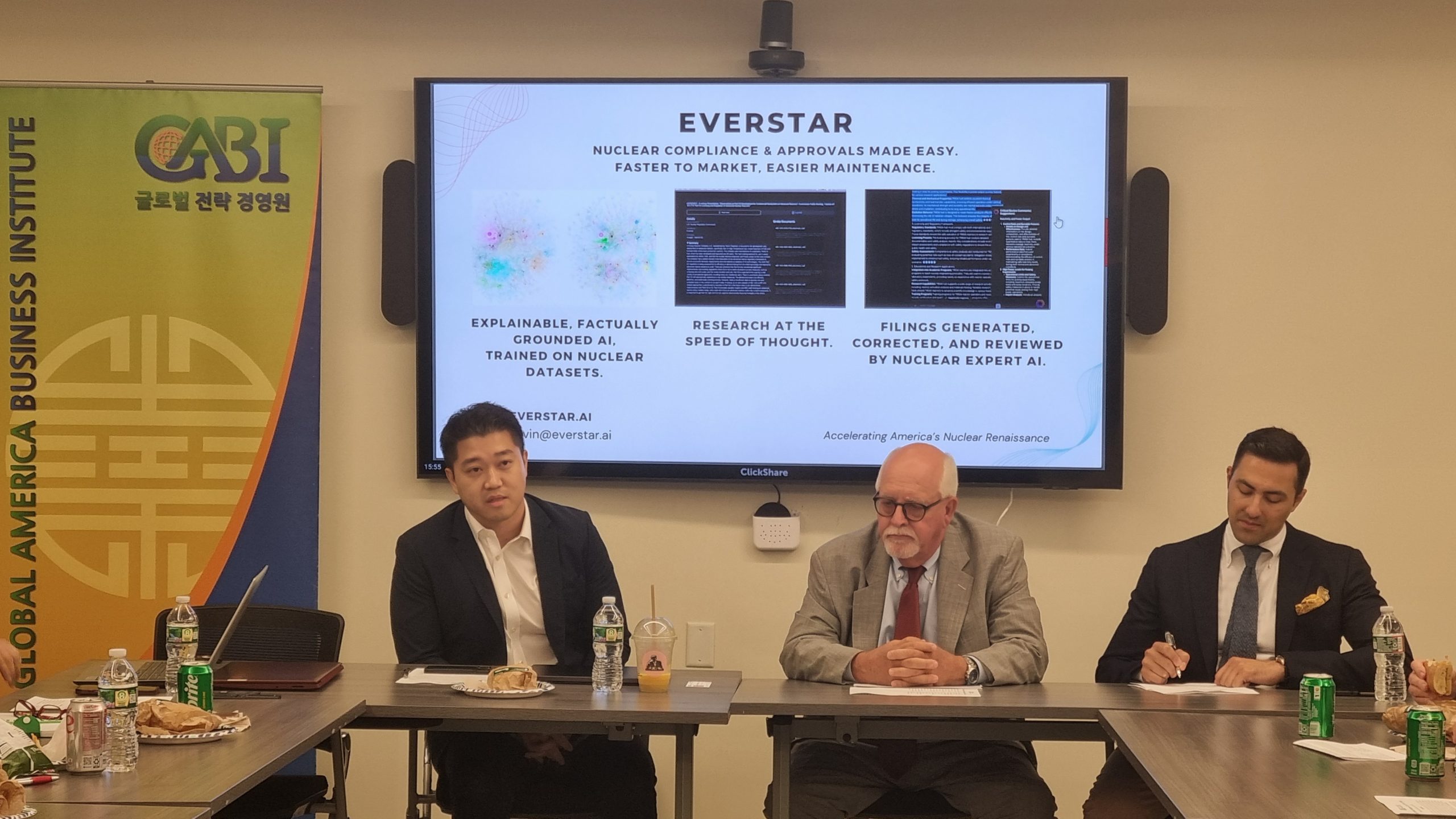On July 28th, GABI partnered with the Foundation for Nuclear Studies (FNS) in organizing a Capitol Hill briefing on recent progress and developments in nuclear power safety and regulation. The briefing featured two very high level figures: Dr. Soon-Heung Chang, President of Handong Global University and Chairman of the Advisory Committee on Nuclear Safety and Security within the Korean Nuclear Safety and Security Commission (NSSC), and Dr. Dale Klein, former Chairman and Commissioner at the US Nuclear Regulatory Commission. Mr. Paul Dickman, Senior Policy Fellow at Argonne National Laboratory, moderated the event.
On the basis of numerous benchmarks, nuclear power generation has a good historical safety record. For example, although the Three Mile Island accident entailed severe damage to the Unit 2 reactor, there were no injuries and no measurable negative health effects on the nearby population. Nevertheless, continuing efforts must be undertaken to enhance the safety of nuclear generation, particularly reducing the core damage frequency (CDF) for civil nuclear power plants. The primary cause of the Fukushima incident was the failure to sufficiently remove decay heat as a result of station black-out. Therefore, reducing the failure probability of AC power restoration and reinforcing emergency alternate AC sources can dramatically improve the safety of NPPs. Integrated passive safety systems, generally involving additional water tanks outside of the reactor containment to be used as heat sinks, can assist with decay heat removal in an accident scenario. Other measures, such as containment cooling and venting, can be considered options for enhancing nuclear safety.
Beyond the technical means for improving the safety of nuclear power, deploying defense in depth, preparing for beyond design basis events, regulatory independence, and adequate operator training are crucial components for progressing safety. However, perhaps the most important key for the safe operation of nuclear power plants is an effective safety culture—implementing lessons learned, creating an environment conducive to raising concerns and effective communication, and allowing questioning attitudes.

